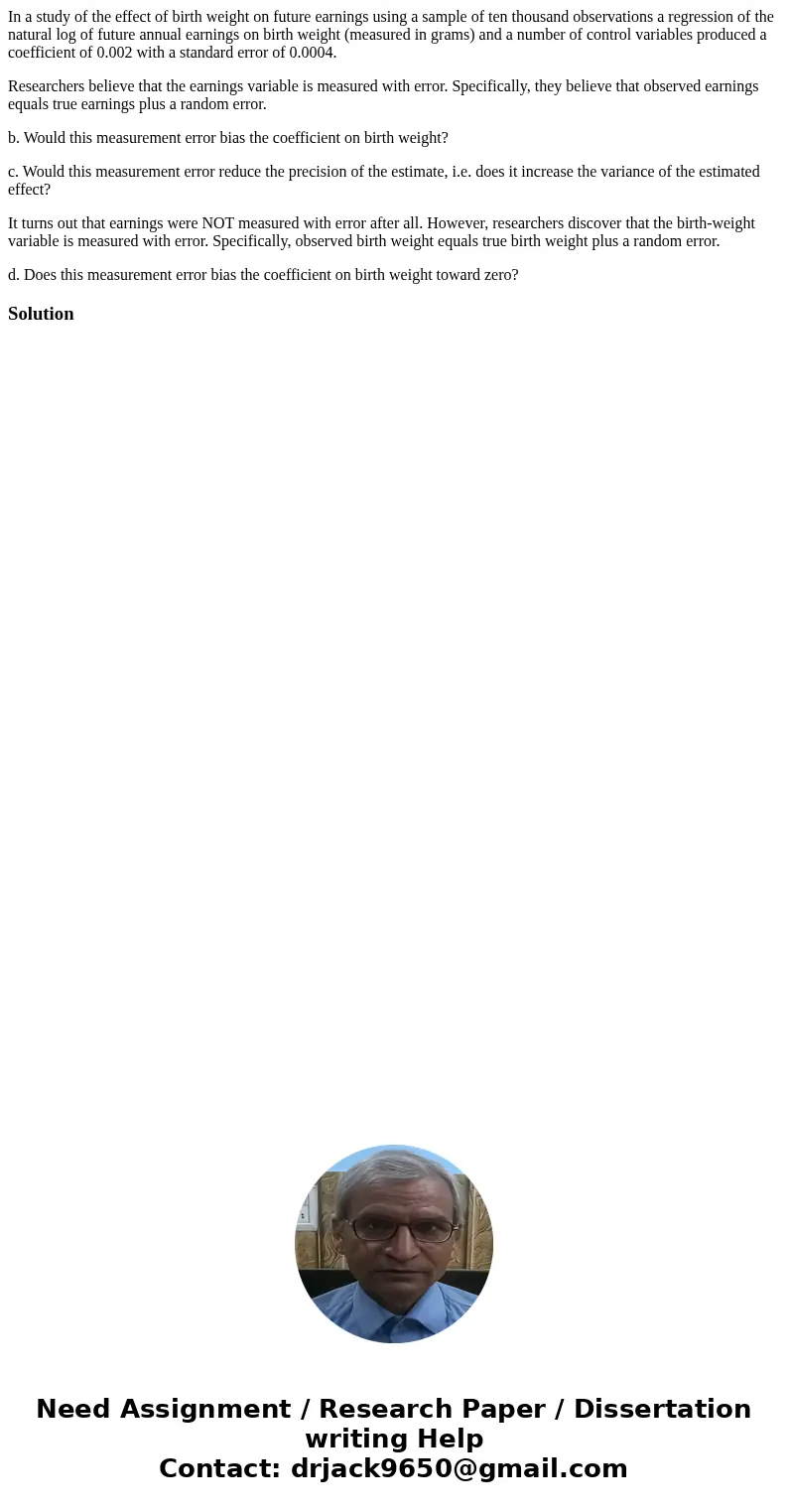In a study of the effect of birth weight on future earnings
In a study of the effect of birth weight on future earnings using a sample of ten thousand observations a regression of the natural log of future annual earnings on birth weight (measured in grams) and a number of control variables produced a coefficient of 0.002 with a standard error of 0.0004.
Researchers believe that the earnings variable is measured with error. Specifically, they believe that observed earnings equals true earnings plus a random error.
b. Would this measurement error bias the coefficient on birth weight?
c. Would this measurement error reduce the precision of the estimate, i.e. does it increase the variance of the estimated effect?
It turns out that earnings were NOT measured with error after all. However, researchers discover that the birth-weight variable is measured with error. Specifically, observed birth weight equals true birth weight plus a random error.
d. Does this measurement error bias the coefficient on birth weight toward zero?
Solution

 Homework Sourse
Homework Sourse